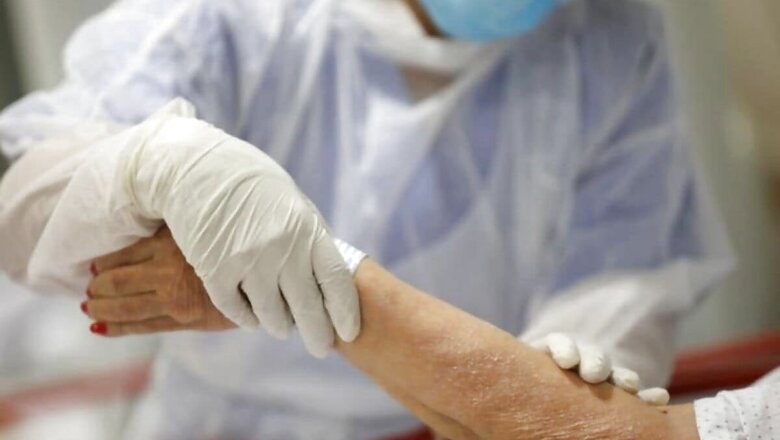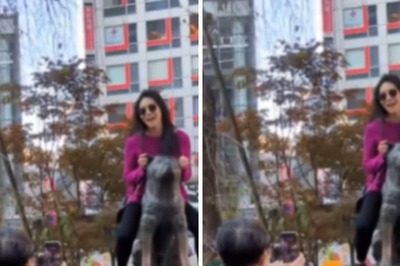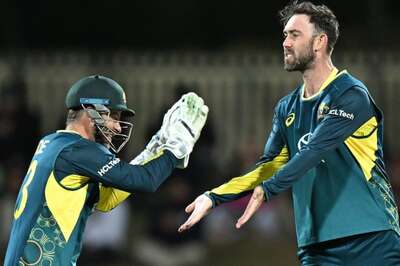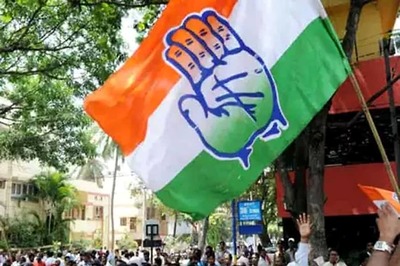
views
For 63-years old Aparna Maiti*, life turned upside down when she tested positive for Covid-19 last month and was admitted to Calcutta Medical College and Hospital.
Her husband Bibhas* (69) – a retired government employee – was completely shaken as it was not possible for him to visit the hospital every day to inquire about his wife's health as he is a diabetic and faces a higher chance of experiencing serious complications if he contracts the infection.
With their children away in Canada's Vancouver for work, each day felt like nothing short of a nightmare for Aparna and Bibhas. On one hand, old age proved to be a big challenge during the pandemic, while on the other, loneliness started affecting their mental health.
The Maiti's were struggling due to the painful situation of being separated from each other. Aparna was at the hospital and Bibhas was helplessly praying for her speedy recovery at home. But on one fine morning, a soft and comforting voice brought a smile on Aparna’s face.
“Kemon achhen mashima. Chinta korben na. Ebar bari jabar somoy ese gechhey...aar koy ekta din. Amra achhi chinta korben na (How are you aunty...no need to worry...Few more days and you will be at home...We are there with you always),” the caller told Aparna.
The call not only lifted Aparna's spirits but also resulted in her responding to the medication faster. Her discharge from the hospital last week brings much respite to the Maiti's.
Like Aparna, there are several others who are receiving similar phone calls and being counselled by these invisible Covid-19 warriors.
The brainchild of West Bengal Chief Minister Mamata Banerjee, the initiative comprises invisible Covid-19 warriors, who are college students or graduates, and have been roped in by the state government to counsel Covid-19 patients.
To start, the state government had approached Calcutta University and asked them for names of students who would like to volunteer to be a part of ‘Helping Hand Team’ as Covid-19 warriors. So far, nearly 30 students have been selected through a telephonic interview and those shortlisted were asked to counsel Covid-19 patients over the phone.
These warriors are not only counselling them but also putting them in touch with a doctor. They were also given medical history-sheets of the patients to help them better understand their psyche.
Those who are working as ‘Helping Hand Team’ members at the government’s ‘tele-psychological counselling centres’ have good communication skills and are trained in handling patients with ‘thanatophobia’ (fear of death) and have an understanding of human psychology and age-related issues.
It was learnt that in the last month more than 4,000 people had been counselled by these Covid-19 warriors and there are plans to rope in more college students from all the districts in the next few weeks.
Their contract will be for two months, which could be extended depending on the situation. They will be awarded a monthly stipend for this service from the government.
Recently, CM Mamata Banerjee urged more youths to come forward and join this initiative while commending those who are already part of the 'Helping Hand' team.
Earlier, the chief minister had started ‘COVID Clubs’ in Bengal where ‘willing people’ who recovered from the disease, would be engaged to counsel coronavirus infected patients admitted at various hospitals in the state.
“We have set up COVID Clubs in Bengal where individuals who have recovered can share their experience with the infected patients on how they fought Covid-19 and their experiences while under treatment at various hospitals. Besides counselling them, they will also serve food to the patients (as per doctor’s advice) and they will talk to the patients about the virus to remove the sense of fear among the existing patients,” Mamata had said at the state secretariat ‘Nabanna’.
She had further said, "They survived Covid-19 after a battle. We will utilise their experience. There are people who are facing social boycott because they are suffering from Covid-19. The same problem is being faced by those who survived the disease. These COVID club members will counsel the patients and tell them that there is nothing to worry about. This will help the existing patients to recover mentally as well as medically.”
* Names have been changed on request















Comments
0 comment